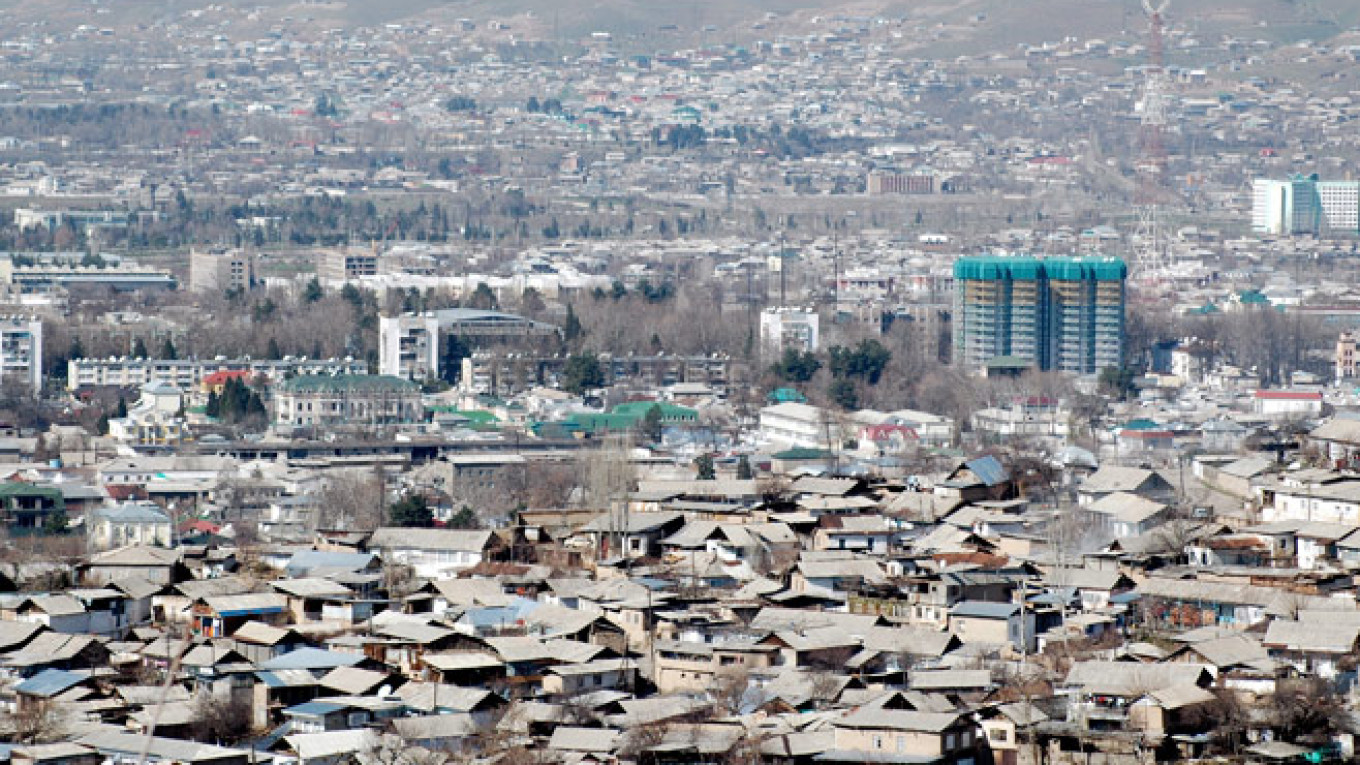Originally published by EurasiaNet.org.
Tajikistan's war on the wrong clothes looks set to step up a gear as the authorities resolve to crack down on anything they perceive as dangerous, radical Islam.
Asia-Plus website reported that a meeting in Dushanbe on Aug. 19 brought together the mayor, members of parliament, city deputies, police, traders and religious leaders for discussions touching on areas of concern, including the flourishing of radical Islam.
Dushanbe Mayor Mahmadsaid Ubaidulloev appealed to meeting participants to help combat "displays of religious extremism and terrorism" and for all city residents to assist in the battle.
To that end, Ubaidulloev issued instructions for government officials to put an end to the import and sale of clothes alien to Tajiks. That is typically code for conservative Islamic clothing worn by women, anything from hijabs to the niqab, which covers almost the entire face.
What those clothes might be was also spelled out by President Emomali Rahmon during a Mother's Day speech in February.
"Since ancient times our people have had beautiful women's dresses, our girls have never worn black clothes. Traditionally, black clothes are not welcome," Rahmon told mothers ahead of Mother's Day, which has replaced International Women's Day in Tajikistan and is marked on March 8.
State television tried to spice up that message some days after the speech by airing a report telling of prostitutes who use the veil to enhance their appeal.
It is a risky gambit and one that threatens to bring latent anger to the surface, but informally regulating people's appearance is a long-standing aspect of a government campaign against outward expression of religious devotion in Tajikistan. Local media have in the past reported on police intimidation against men wearing beards, targeting them for detention.
Authorities also hope to cultivate an artificial grassroots approach to marginalize undesirable conduct. Interior Minister Ramazon Rahimzoda said at a meeting with youth groups on Aug. 20 that he wants to see the creation of "vanguard" groups tasked with preventing the spread of extremism ideas among the youth, Asia-Plus reported.
The proposal seems to create organizations modeled on government-generated youth groups in Russia, like Nashi, which once served as shock troops tasked with countering opposition activities.
Rahimzoda said the organizations would be engaged in spreading knowledge of national values and the teachings of Imam Abu Hanifah, the 8th-century founder of the Islamic school of thought that today constitutes the mainstream across Central Asia.
The expectation is that the youth groups will organize meetings and conference to spread awareness about the dangers of dabbling with extremist organizations.
The timing could not have been better. Just the day before the Interior Ministry meeting, a group of youths was detained in the southern Shahrtuz district, around 40 kilometers north of the border with Afghanistan, on suspicion of sympathies with the Islamic State group, Interfax reported, citing a high-ranking security official.
Interfax reported that a flag similar to the one adopted by the Islamic State group was hoisted on a monument to Ismoil Somoni, the 9th century king viewed as the founder of the Tajik state.
"A group of Tajik teenagers from the ages of 15 to 18 were detained for further clarification about what led them to this act: the hanging of a black blanket that somehow mimics the flag of the so-called Islamic State," the official told.? Investigators are now trying to work out if the gesture was politically motivated or simply a crass prank, Interfax reported.
What looks like an overreaction broadly conforms to Tajikistan's shoot first, ask questions later approach, which bodes ill for any would-be outreach initiatives.
Originally published by EurasiaNet.org.
A Message from The Moscow Times:
Dear readers,
We are facing unprecedented challenges. Russia's Prosecutor General's Office has designated The Moscow Times as an "undesirable" organization, criminalizing our work and putting our staff at risk of prosecution. This follows our earlier unjust labeling as a "foreign agent."
These actions are direct attempts to silence independent journalism in Russia. The authorities claim our work "discredits the decisions of the Russian leadership." We see things differently: we strive to provide accurate, unbiased reporting on Russia.
We, the journalists of The Moscow Times, refuse to be silenced. But to continue our work, we need your help.
Your support, no matter how small, makes a world of difference. If you can, please support us monthly starting from just $2. It's quick to set up, and every contribution makes a significant impact.
By supporting The Moscow Times, you're defending open, independent journalism in the face of repression. Thank you for standing with us.
Remind me later.


